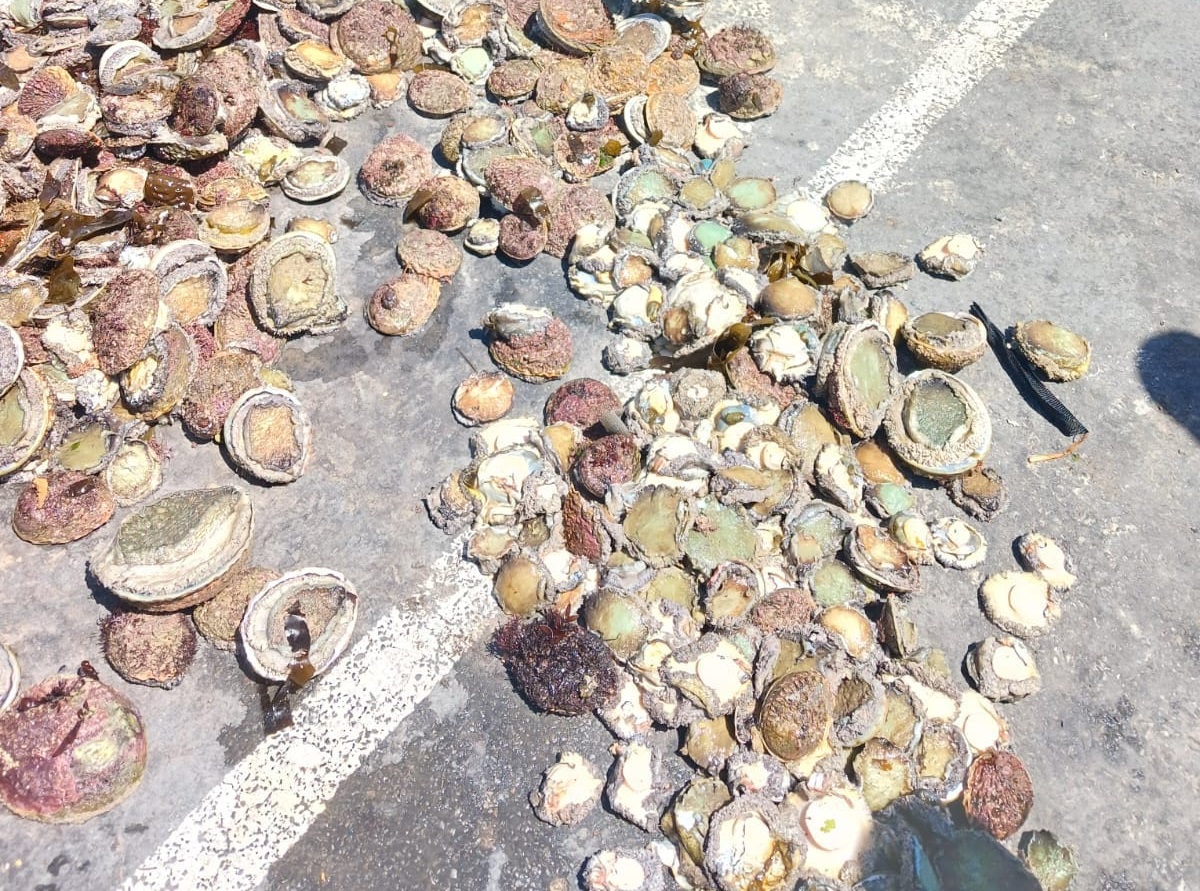Man nabbed with R120,000 worth of abalone in Muizenberg! Police in Muizenberg, Cape Town, have arrested a 22-year-old man for being in possession of abalone worth an estimated R120,000. The arrest was made on Thursday following a tip-off, and the suspect is expected to appear in court once he has been formally charged.
Tip-Off Leads to Arrest
According to police spokesperson Wesley Twigg, law enforcement acted swiftly after receiving information about a suspect transporting abalone in a Toyota Corolla. The vehicle was reportedly en route from Simon’s Town, a popular seaside town in the southern part of Cape Town, and heading toward Muizenberg.
“The members followed up information about a driver of a Toyota Corolla who is en route from Simon’s Town and is transporting abalone,” Twigg explained.
The police tracked down the vehicle and intercepted it at Sunrise Circle, a busy intersection in Muizenberg known for its traffic flow and connections to multiple Cape Town suburbs.
Search and Discovery
Upon stopping the vehicle, officers conducted a thorough search and discovered 562 units of abalone hidden inside. The estimated street value of the haul is believed to be around R120,000.
“The vehicle was spotted and stopped at Sunrise Circle in Muizenberg. They searched the vehicle and found 562 units of abalone with an estimated street value of R120,000,” Twigg said.
The 22-year-old suspect was immediately taken into custody. Police confirmed that he would be charged with possession of abalone and will face legal proceedings in court soon.
Abalone Poaching: A Persistent Problem
The arrest highlights the ongoing issue of abalone poaching in South Africa. Abalone, known locally as “perlemoen,” is a highly prized delicacy, especially in East Asian markets. The demand for the shellfish has fueled a thriving illegal trade that has devastated South Africa’s abalone populations over the past few decades.
Cape Town and its surrounding coastal towns have become hotspots for abalone poaching, with organized crime syndicates often involved in the illegal harvesting, transportation, and exportation of the shellfish.
The lucrative nature of the illegal abalone trade makes it difficult for authorities to combat, as poachers often go to great lengths to evade capture. The discovery of 562 units in this latest case underscores the scale and sophistication of the operations behind such crimes.
Law Enforcement Efforts
The South African Police Service (SAPS) has been ramping up efforts to curb the illegal abalone trade in recent years. Joint operations involving the police, marine and coastal management units, and other law enforcement agencies have led to several high-profile arrests and seizures.
However, the fight against abalone poaching is far from over. Criminal syndicates continue to exploit loopholes in the system, while many poachers come from impoverished communities and view the illegal trade as a means of survival.
Legal Implications
The suspect in this case is likely to face charges under South Africa’s Marine Living Resources Act, which governs the protection and sustainable use of marine resources. If found guilty, he could face heavy fines and potentially a prison sentence.
Authorities hope that arrests like this one will send a strong message to others involved in the illegal trade that law enforcement is actively monitoring and taking action against abalone poaching.
Community Impact
The arrest has drawn attention from local residents, many of whom are frustrated with the ongoing environmental impact of abalone poaching in the area. Abalone is not only a critical part of the marine ecosystem but also an important cultural and economic resource for many coastal communities.
By stepping up enforcement and raising awareness about the consequences of poaching, authorities aim to protect South Africa’s abalone population for future generations.
Looking Ahead
As the suspect awaits his court appearance, the Muizenberg community and law enforcement remain vigilant. Police are urging members of the public to report any suspicious activities related to abalone poaching to help curb the illegal trade.
This latest arrest serves as a reminder of the challenges South Africa faces in protecting its natural resources and the ongoing efforts to preserve its rich marine biodiversity.

